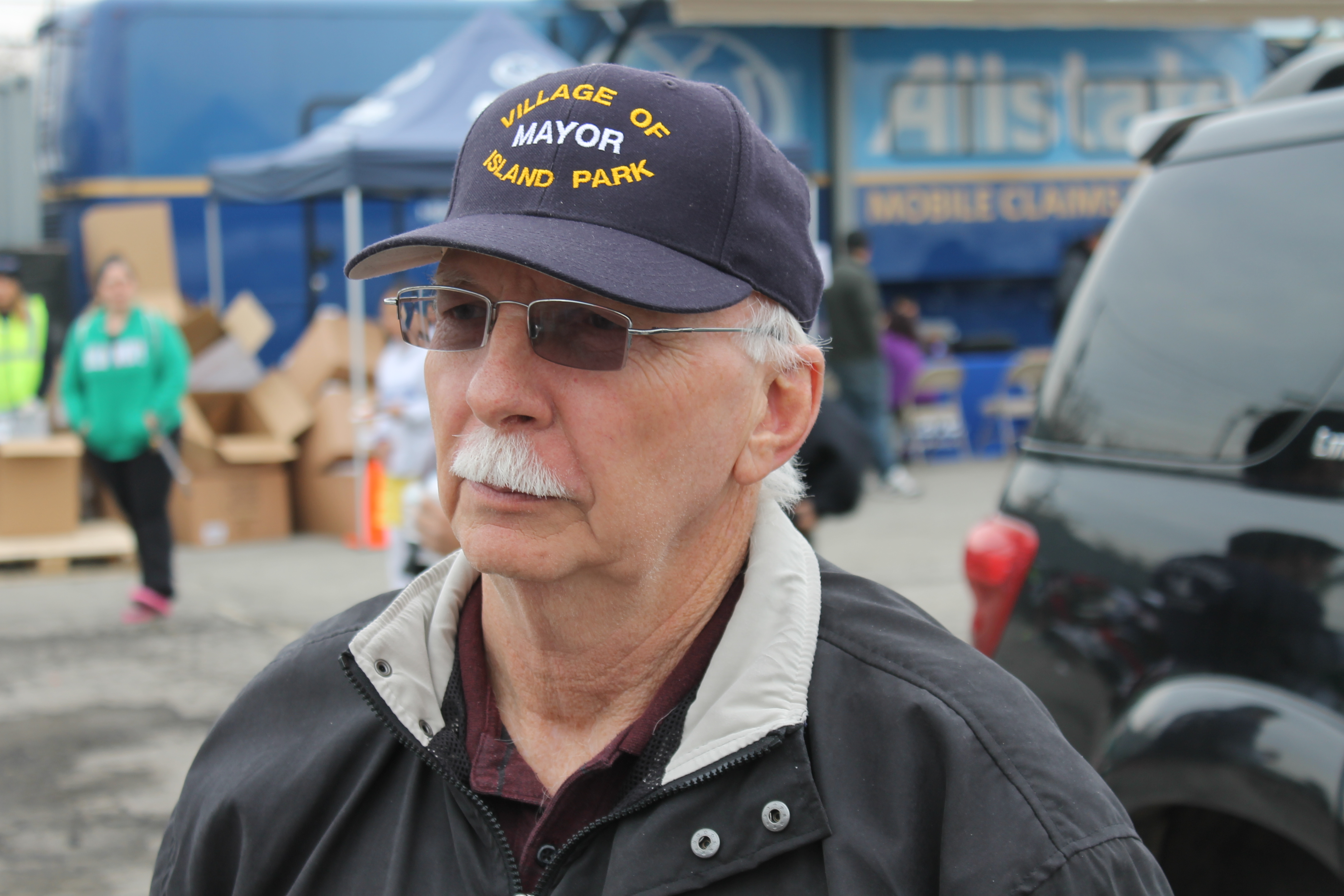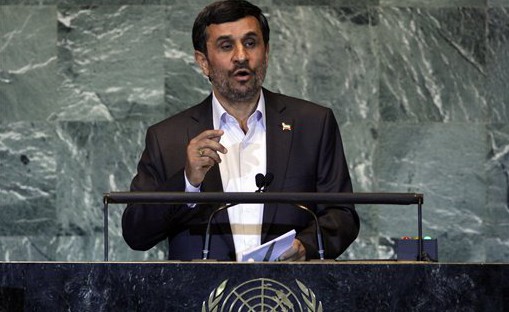President Barack Obama announced Wednesday he has accepted the resignation of Gen. Stanley McChrystal as his top U.S. commander in Afghanistan in the wake of comments made in a Rolling Stone Magazine article and will replace him with Gen. David Petraeus, commander of the United States Central Command.

In this Jan. 20, 2010 file photo, Gen. Stanley McChrystal, Commander of the International Security Assistance Forces (ISAF) and Commander of United States Forces in Afghanistan arrives to attend at the 13th Joint Coordination and Monitoring Board (JCMB) Meeting in Kabul, Afghanistan. (AP Photo/Musadeq Sadeq, File)
“I did so with considerable regret, but also with certainty that it is the right thing for our mission in Afghanistan, for our military, and for our country,” Obama told reporters at a press conference in the White House Rose Garden.
“The conduct represented in the recently published article does not meet the standard that should be set by a commanding general,” the president continued. “It undermines the civilian control of the military that is at the core of our democratic system. And it erodes the trust that’s necessary for our team to work together to achieve our objectives in Afghanistan.”
Obama fired the commander after summoning him from Afghanistan for a face-to-face meeting in the Oval Office, and named Petraeus, the Central Command chief who was McChrystal’s direct boss, to step in. Obama had offered the job to Petraeus during a private White House meeting earlier Wednesday, said a senior military official.
In a statement expressing praise for McChrystal yet certainty he had to go, Obama said he did not make the decision over any disagreement in policy or “out of any sense of personal insult.” Flanked by Vice President Joe Biden, Defense Secretary Robert Gates and Adm. Mike Mullen, chairman of the Joint Chiefs of Staff, he said: “War is bigger than any one man or woman, whether a private, a general, or a president.”
He urged the Senate to confirm Petraeus swiftly and emphasized the Afghanistan strategy he announced in December was not shifting with McChrystal’s departure.
“This is a change in personnel but it is not a change in policy,” Obama said.
As Obama was speaking, McChrystal released the following statement:
“This morning the President accepted my resignation as Commander of U.S. and NATO Coalition Forces in Afghanistan,” Gen. McChrystal said. “I strongly support the President’s strategy in Afghanistan and am deeply committed to our coalition forces, our partner nations, and the Afghan people. It was out of respect for this commitment—and a desire to see the mission succeed—that I tendered my resignation.
“It has been my privilege and honor to lead our nation’s finest,” it ends.
With lawmakers of both parties praising the choice of Petraeus, the White House is confident he will be confirmed before Congress adjourns at the end of next week.
Obama hit several grace notes about McChrystal and his service after their half-hour meeting, but said the job in Afghanistan cannot be done now under McChrystal’s leadership, asserting that the critical remarks from the general and his inner circle in the Rolling Stone Magazine article displayed conduct that doesn’t live up to the standards for a command-level officer.
“I welcome debate among my team, but I won’t tolerate division,” Obama said. He had delivered that same message—that there must be no more backbiting—to his full war cabinet in a Situation Room session, said a senior administration official.
The announcement came as June became the deadliest month for the U.S.-dominated international coalition in Afghanistan. NATO announced eight more international troop deaths Wednesday for a total of 76 this month, one more than in the deadliest month previously, in July 2009. Forty-six of those killed this month were Americans. The U.S. has 90,800 troops in Afghanistan.
McChrystal left the White House after the meeting and returned to his military quarters at Washington’s Fort McNair.
Petraeus, who attended a formal Afghanistan war meeting at the White House on Wednesday, has had overarching responsibility for the wars in both Afghanistan and Iraq as head of Central Command. He was to vacate the Central Command post after his expected confirmation, giving Obama another key opening to fill. The Afghanistan job is actually a step down from his current post but one that filled Obama’s pre-eminent need.
Petraeus is the nation’s best-known military man, having risen to prominence as the commander who turned around the Iraq war in 2007, applying a counterinsurgency strategy that has been adapted for Afghanistan.
He has a reputation for rigorous discipline. He keeps a punishing pace—spending more than 300 days on the road last year. He briefly collapsed during Senate testimony last week, apparently from dehydration. It was a rare glimpse of weakness for a man known as among the military’s most driven.
In the hearing last week, Petraeus told Congress he would recommend delaying the pullout of U.S. forces from Afghanistan beginning in July 2011 if need be, saying security and political conditions in Afghanistan must be ready to handle a U.S. drawdown.
By pairing the decision on McChrystal’s departure with the name of his replacement, Obama is seeking to move on quickly and assure Afghans, U.S. allies and a restive American electorate that a firm hand is running the war.
Waheed Omar, spokesman for Afghan President Hamid Karzai, said Petraeus “will also be a trusted partner.” Karzai had been a lonely voice in speaking out in support of McChrystal. But Omar said of Petraeus: “He is the most informed person and the most obvious choice for this job” now that McChrystal is out.
Although McChrystal did not directly insult Obama in the magazine article, he called the period last fall when the president was deciding whether to approve more troops “painful” and said the president appeared ready to hand him an “unsellable” position.
McChrystal did tell Michael Hastings, the author of the piece—titled “The Runaway General” and slated to hit stands June 25—he was “betrayed” by Ambassador Karl Eikenberry, the man the White House chose to be his diplomatic partner in Afghanistan. McChrystal accused Eikenberry of raising doubts about Karzai only to give himself cover in case the U.S. effort failed. And he was quoted mocking Biden.
If not insubordination, the remarks—as well as even sharper commentary about Obama and his White House from several in McChrystal’s inner circle—were at the least an extraordinary challenge from a military leader. The capital hadn’t seen a similar public contretemps between a president and a top wartime commander since Harry Truman stripped Gen. Douglas MacArthur of his command more than a half-century ago after disagreements over Korean war strategy.
Despite McChrystal’s military achievements, he has a history of making waves. Last fall, as Obama was weighing how to adjust Afghanistan policy, McChrystal spoke bluntly and publicly about his desire for more troops—earning a scolding from the president, who felt the general was trying to box him into a corner.
In the Rolling Stone piece, Hastings, a former Newsweek war correspondent, details several revealing scenes with the general and his entourage, which includes loose-lipped aides often quoted but never named. In one such episode, he accompanies the general and his crew on a night out drinking at a bar in Paris. Some present mock Biden and sing a made-up song about Afghanistan, among other antics.
After pitching Rolling Stone editors on a profile piece about McChrystal and scoring the interview, a twist of fate—the eruption of an Icelandic volcano—stranded aircraft and transformed Hasting’s initial sit-down into a month-long excursion, he told to Newsweek in a June 22 interview.
“I saw General McChrystal and his new strategy as a way to look at our Afghan policy to see if it’s working or if it’s a totally insane enterprise,” he said. “I met with editors at Rolling Stone, they seemed into the idea, so I e-mailed McChrystal’s people. I didn’t think I was going to get any access at all. It’s one of those strange journalistic twists. They said yes, come on over to Paris to spend a couple days with us.
“The Icelandic volcano happens, and so my two-day trip turned into this month-long journey following General McChrystal and his staff around from Paris to Berlin to Kabul to Kandahar and then back to Washington, D.C.,” he continued. “I wasn’t with him at every moment, obviously, but fairly regularly over that period of time.”
New York and Long Island political leaders contacted by the Press agreed with Obama’s decision and expressed support for the new U.S. top commander in Afghanistan.
Congressman Steve Israel (D-Huntington) released the following statement on the nomination of General David Petraeus to be Commanding General in Afghanistan:
“The President made a smart move by putting General Petraeus in charge of an incredibly challenging war in Afghanistan. I have a long history with General Petraeus and recently visited him at CENTCOM. General Petraeus is the gold standard in the American military and I am confident he will provide strong leadership to our soldiers in the field and sound advice to our policymakers.
“General McChrystal’s comments were out of line,” it continues. “Now we must remain focused and get on with the difficult task at hand: denying terrorists a safe-haven to train and prepare to do us harm.”
“It was the commander in chief’s decision to make, but there is no question that the entire incident is a distraction from our mission in Afghanistan,” U.S. Senator Kirsten Gillibrand (D-NY) tells the Press. “The President’s decision to name Gen. Petraeus is an excellent choice. General Petraeus knows the region and has the confidence of our troops and allies.”
Congressman Peter King (R-Seaford) posted the following on his website:
“While I have a great personal regard for General Stanley McChrystal, I fully understand and support President Obama’s decision to accept his resignation as U.S. and NATO Commander in Afghanistan. General McChrystal’s recent comments were entirely inappropriate. I strongly support the President’s appointment of General David Petraeus to replace General McChrystal. General Petraeus is a true American hero who implemented the ‘surge’ policy and succeeded in Iraq against great odds.”
“I support the president’s decision,” Congresswoman Carolyn McCarthy (D-Garden City) tells the Press. “Gen. McChrystal’s comments reflect poor judgment and have no room given the scope of his position. He had plenty of items that required his focus, least of which should have been disparaging remarks about the president and members of the administration to an entertainment magazine.
“I support the appointment of Gen. Petraeus, I think he will do a fine job and I wish him well in the new role,” she adds.
With The Associated Press: Annie Gearan and Jennifer Loven, Associated Press Writers
Associated Press writers Julie Pace, Pauline Jelinek, Kimberly Dozier and Anne Flaherty in Washington and Deb Riechmann in Kabul, Afghanistan, contributed to this report.






